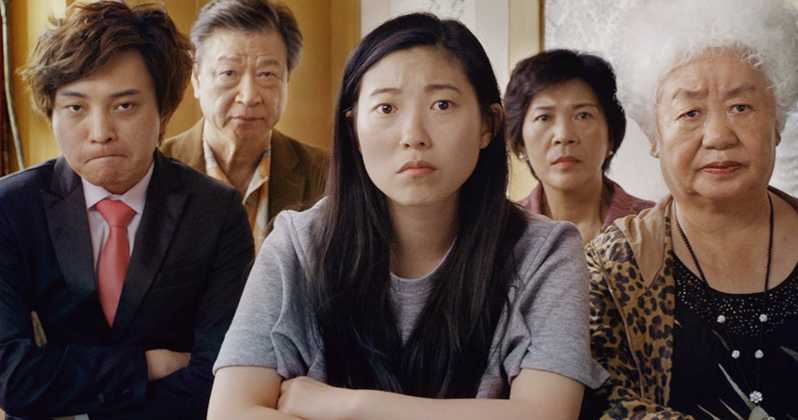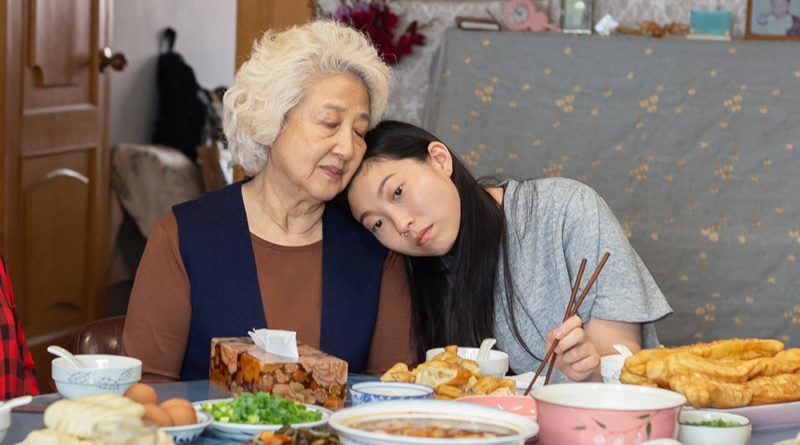Films like Lulu Wang‘s The Farewell are rare. This is the sort of film that we ought to be grateful for, merely because it exists. It is gentle, unassuming and slow but never boring. It is always entertaining and often funny. It highlights many of those things that get lost in translation across cultures while concurrently showing us universal truths about those same cultural differences. It is always speaking to us, always conveying something important but it is never without, at least on face value, a sense of effortlessness.
The Farewell also contains an accurate depiction of love, something that is rarer than you might think in film. The entire film centres around love. Not romantic love, which is certainly an over represented facet of affection in cinema, but familial love – less enthusiastically adopted by filmmakers. Love is not an easy thing for us to buy, perhaps because it is one of the most singular and acutely fierce of emotions. I have rarely believed love in a film as much as I did in The Farewell.
Billi (Awkwafina) is an aspiring Chinese-American writer living in New York. She has lived in America since she was a little girl but maintains a strong relationship with her Nai Nai (Shuzhen Zhao) – a term for maternal grandmother in Mandarin – through long distance phone calls and the occasional visit to Changchun back in China.
On a visit to her parents house, Billi discovers that Nai Nai has been diagnosed with terminal lung cancer with a prognosis of only three months. More shocking is that the extended family has decided to withhold the information from Nai Nai herself, justifying the deception by explaining to Billi that the practice is common in China, a method of not alarming the dying person.
Purpose is critical. No scenes are wasted. Wang displays a confident blend of purpose and economy rarely seen in filmmakers, ever. You could point to any given moment and there would be a compelling reason for its inclusion in the film. In some scenes, when multiple characters are on screen, we are offered subtle insights into their character just through their behaviour, even when it isn’t the focus of that scene. Much is conveyed through the actions and reactions of family members, making it difficult to know where to look and who to look at.
Arguably no character is more significant than Nai Nai. I am astonished to learn that this is Shuzhen Zhao’s first film, so luminous and magnetic is her screen presence. Her charm and warmth draws us as an audience to her just as it does her family. Zhao’s sheer force of personality does a lot of the work for Wang in allowing us to believe just how avidly each member of the family loves her.
Sophia Coppola’s Lost In Translation is an unforgettable example of the alienating power of cultural differences but Wang has accomplished something arguably more sophisticated here by allowing those differences to shine, exploiting them for comedy and pathos, while also articulating those aspects of family life and family love that we all have experience with, regardless of our culture or background.
Immigration, fundmentally an act that forces those who engage with it to experience both sides of a cultural divide, is perhaps one of the more appropriate avenues in which to explore realities and emotions that connect every single one of us. It’s worth mentioning that our primary lens through which much of this is probed is Awkwafina, whose wonderful performance contains the sort of offhand naturalism most actors would kill for.
Tellingly, though the central conceit of withholding crucial health information from someone is a notion that many would find difficult and strange, Wang’s film has been met with universal acclaim. There are few, if any, films that reveal true familial love in the way in which The Farewell does. And it does it by showing us just how much like our family Billi’s is, even when it is telling us that they are not.


